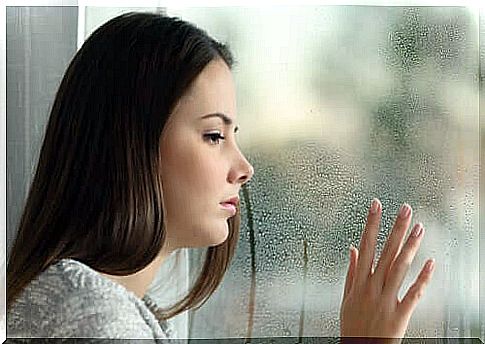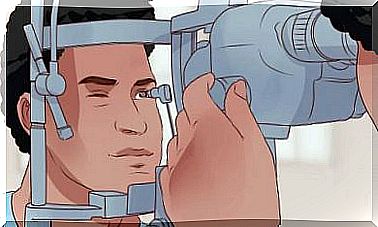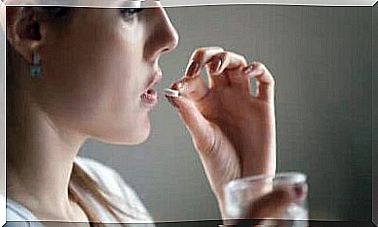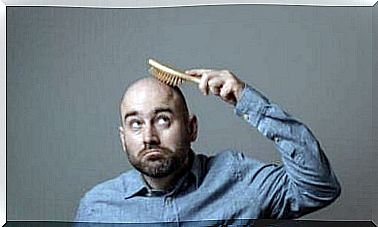What Is Post-holiday Syndrome?

Post-holiday syndrome refers to a set of emotions that people experience after returning from vacation – or for a long period of time without working – when they return to their workplace and resume their responsibilities.
This emotional imbalance is characterized by causing apathy, sadness and fatigue, both physical and psychological. Therefore, it is sometimes called post-holiday depression. Have you ever had this problem? We tell you everything in the space below.
Is post-holiday syndrome a disorder?
None of the psychiatry or psychology textbooks – like the DSM-5 or the ICD-11 – recognize the post-holiday syndrome as an illness or a type of depression. However, this does not mean that it can be a source of discomfort for people returning from a vacation or rest period.
The post-holiday syndrome, therefore, is not considered a psychological disorder, but a temporary imbalance in which the person needs to re-adjust to their tasks after a period of rest.
According to doctors Herrero and Esquirol (2016), the scientific community did not find a consensus on the post-holiday syndrome, as they consider that:
They add that if in a different society work were considered an activity to increase creativity and personal development, the post-vacation syndrome would not exist. Going back to something you don’t like after enjoying something you do enjoy is, and always has been, problematic, not just when it comes to vacations.

Post-holiday syndrome is not considered a disorder. However, it is an emotional change that can trigger physical and psychological symptoms.
Adaptation as the main problem
Professor Michael Baigent guarantees that the great problem of post-holiday syndrome is adaptation. So he says it’s normal to feel sad, despondent or nostalgic when you get back from summer.
He argues that, on vacation, people are filled with enjoyable activities that they don’t do in their routine. So when you stop doing what you like and start doing what you don’t enjoy so much, you feel nostalgic or upset.
Being a problem of adapting to the place or work activity and to different stimuli beyond those received on vacation, the post-holiday syndrome usually doesn’t last more than ten or fifteen days, until the person is able to adapt the thoughts, behaviors and emotions.
Post Vacation Syndrome Symptoms
As a disorder that is not yet defined, the symptoms are neither concrete nor specific. However, people who suffer from post-holiday stress can experience both physical and psychological symptoms.
physical symptoms
- fatigue or tiredness
- Dizziness
- low concentration
- Lack of attention
Other less frequent symptoms include:
- Tachycardia
- Headaches
- Lack of appetite
- Insomnia
- digestive problems
emotional symptoms
- Apathy
- Melancholy
- Nostalgia
- Irritability
- Sadness
If the symptoms do not disappear within a maximum period of two weeks, we could be talking about acute stress, generalized anxiety, panic attacks, etc., depending on the person’s characteristics.
In this case, there are other variables that were omitted, or environmental or dispositional risk factors, that led to the development of this disorder. If this happens, it would be important to ask for psychological help, as we are talking about a disorder that can affect a person’s overall performance.

live by and for the holidays
Coach Shannah Kennedy, in an interview with Traveler magazine , considers as a possible cause of the post-holiday syndrome the vital approach of most people from European and American cultures.
She argues that most people live by and for the holidays, waiting for them as the big event of the year. Therefore, they do not enjoy, live or enjoy the period of work. It seems that a vacation is the only thing they need to be happy and enjoy.
This way of looking at life makes people wait a whole year to enjoy just one month of vacation. Therefore, it is normal that, after waiting so long, they feel nostalgia, sadness and apathy, as they have to wait another year to rest again.
The ideal, therefore, is to include short rest periods and “mini vacations” throughout the year, on weekends or holidays. Going to the mountain for a day trip, visiting the beach if you live nearby, and generally preparing projects that don’t have to wait a year to give you the same satisfaction.
Causes of post-holiday syndrome
Although, as explained above, the post-vacation syndrome is due to the lack of adaptation to returning to work, there are certain variables that can motivate it. This incompatibility or difficulty in adapting to the routine after the holidays can be exacerbated by:
- Body image problems : during holidays, people tend to eat more than normal and even to be more sedentary. Therefore, the appearance can change, and the extra pounds change the before and after the vacation. This can lead to body image issues that make the routine much more complex.
- Tiredness : Sleep habits also tend to change in the summer, as people do more nighttime activities and sleep less. Accumulated fatigue can cause feelings of lethargy and fatigue in the workplace.
- Increased alcohol intake : As mentioned above, people often abuse alcohol while on vacation. This can also influence the person’s tiredness and fatigue.
- Make a lot of plans : during the summer, it is also common to do a lot of activities and not rest. Therefore, and in order not to feel the devastation of an excessively busy holiday schedule, it is advisable to allow time for leisure and leisure.
Tips to Overcome Post-Vacation Syndrome

As very few cases of stress after vacation need psychological intervention – and those that occur are because there is a defined disorder with different symptoms and characteristics – we are the ones who must regulate activities to adapt as quickly as possible to the routine.
Some tips for this are:
- Have proper sleep hygiene, sleeping about eight hours. Neither more nor less.
- Plan new projects and challenges, this time throughout the year and not just for next year’s vacation.
- Take care of yourself through nutrition and hydration. It would also be advisable to exercise, which can change the post-holiday mood.
- Plan your return to work to be gradual. Don’t start with an overwhelming intensity from the beginning as this will make it easier to adapt.
- Do not start work immediately after returning from vacation, but consider returning a few days earlier.
- Be careful with alcohol and caffeine. While alcohol can aggravate feelings of apathy and nostalgia, caffeine can do the same with feelings of stress and anxiety.
- Rethink the work. What is work, why is it considered a burden, rethink it in other terms and, as far as possible, find a satisfactory work activity that promotes personal growth.
For all these reasons, for all those who believe they are suffering from a post-holiday syndrome, calm and patience are recommended. Apathy and nostalgia will disappear, in most cases, naturally and within a few days.
Also, if you go through this, it will be easier to create different things so that, on your next vacation, you can arrive refreshed and full of energy, rather than listless, stressed and anxious.








